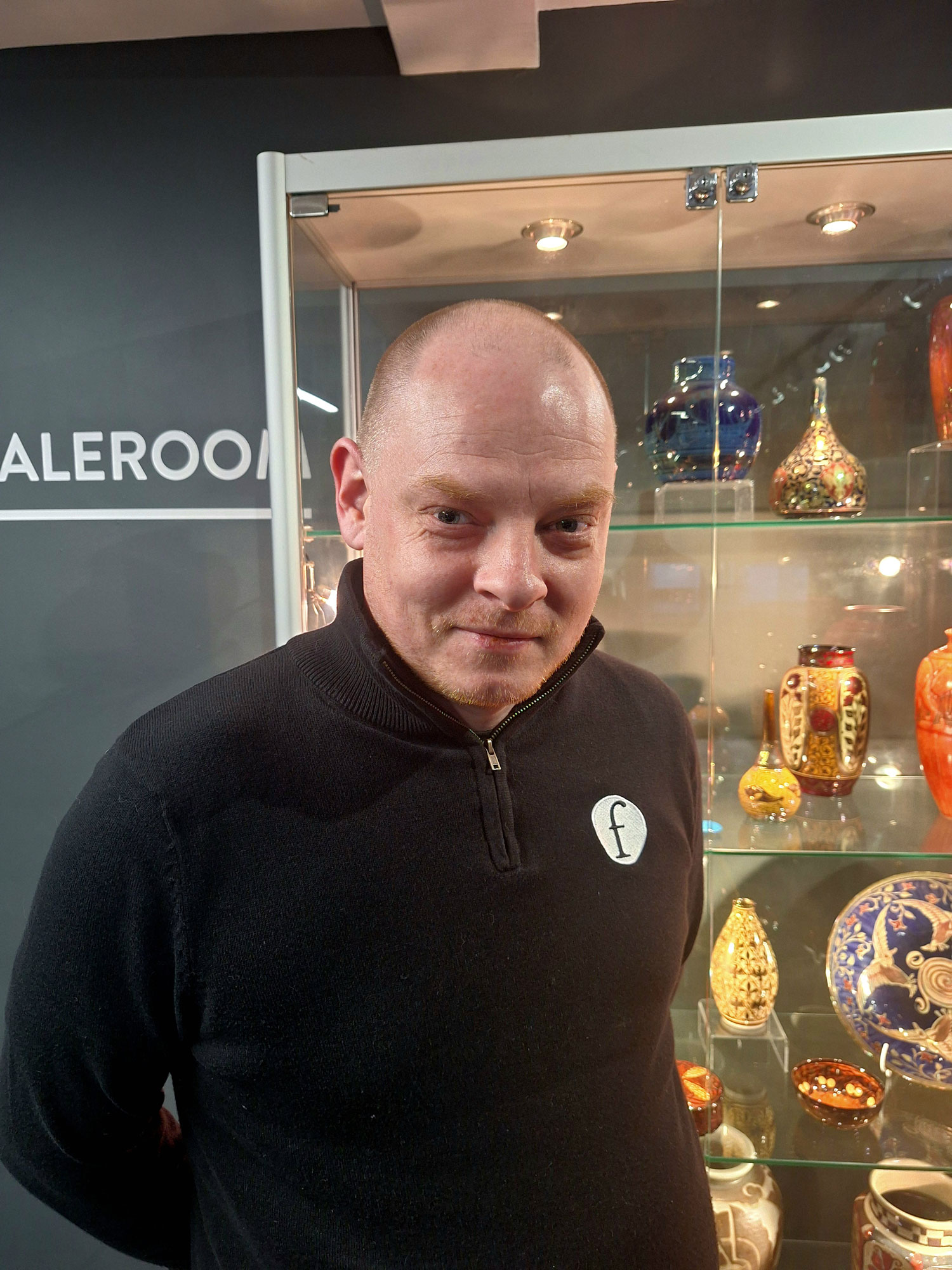Ashby Potters Guild
By Alison Snowdon - Ceramics Specialist
I suspect most people have heard of Ruskin Pottery, Pilkingtons Royal Lancastrian, Ault Pottery, Bretby … the list of art potteries at their height of fame in the early part of the 20th century is endless and yet I wonder how many of you have heard of the Ashby Potters Guild (not to be confused with C.R Ashbee of the Guild of Handicraft).
We have, consigned for our 18th and 19th March Decades of Design, a wonderful collection comprising thirteen curated pieces, so may I take this opportunity to introduce you to this often under rated pottery …
Established in 1909 in Woodville, Derbyshire by Pascoe Tunnicliffe (1881 – 1956). In 1897, Tunnicliffe’s father Edwin Rowland Tunnicliffe, a local butcher turned potter, had taken ownership of a factory in Chapel Street Woodville, and under the name of Victoria Pottery produced utilitarian household wares. Ashby Potters Guild was an expansion of this business, intended to produce ‘high end’ art pottery and would become known for producing vases (of varying size), floating-flower bowls, pot-pourri, ginger jars, plaques, covered vases, tobacco jars, plaques, covered vases, biscuit jars, cake-stands and ink-stands. Pascoe Tunnicliffe created experimental decorative glaze effects (such as lustre, flambe and crystalline glazes) and decorative styles such as foliate design and painted decoration (which was often incredibly similar to pieces from Ruskin Pottery and Pilkingtons Royal Lancastrian), working alongside Thomas Camm (a stained glass artist from Smethwick) who was in charge of design.
In 1910, pieces were exhibited at the International Exhibition in Brussels, the Turin International Exhibition 1911, the Ghent Exhibition 1913 and the British Industrial Arts Exhibition in 1920. The Pottery Gazette noted in 1913 that a crystalline glaze vase was sold to the Copenhagen Museum in 1913.
Like a lot of factories, production was suspended, during the first world war.
In 1922 the pottery merged with the Ault Faience Pottery to form Ault and Tunnicliffe. Ashby Potters Guild ceased production and the mark wares would carry was changed to Aultcliff. When William Ault retired, Tunnicliffe was appointed Works Director. Sadly, during the depression years of the late 1920s, the factory ran into financial difficulties and production was gradually stopped. Tunnicliffe left the potteries and became a water engineer until his death in 1956.
CLICK HERE TO VIEW THE AUCTION
Posted on 16 March 2021
Be in the know
Sign up for auction email alerts so you never miss another sale at Fieldings!
Register now
